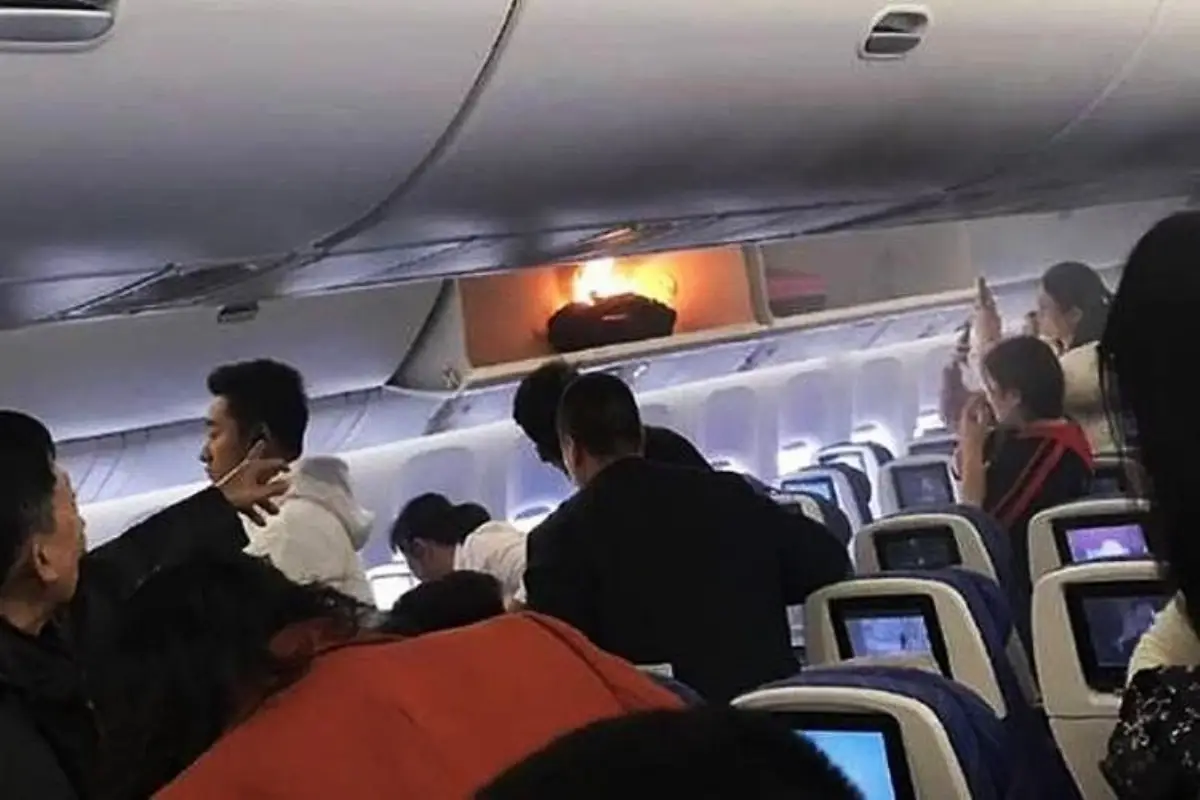
Airplanes and safety. Seoul launches new rules, and bans e-cigs and power banks
The measure affects overhead bins on board and South Korean airlines

Passengers will still be able to carry them on board, but only in their personal luggage or in seat pockets, in order to ensure immediate access in case of emergency
The South Korean Ministry of Transport has announced the adoption of a new safety standard that will come into force on March 1, 2025, in response to the fire that occurred on January 28 on an Air Busan flight (see AVIONEWS). The aim is to strengthen the control on battery-powered devices, especially power banks and electronic cigarettes, considered potential sources of risk due to their chemical properties and the ability to generate overheating or short circuits.
The new provisions prohibit the placement and charging of these devices in airplane overhead lockers. Passengers will still be able to bring them on board, but only in their personal luggage or in seat pockets, in order to ensure immediate access in case of emergency. Furthermore, to avoid the risk of short circuits, the terminals of power banks are expected to be appropriately insulated with adhesive tape or stored in special containers, such as transparent bags or protective cases.
The regulation also establishes precise limits based on the capacity of the devices:
- Up to 100 Wh: a maximum of five units may be carried; exceeding this quantity requires specific authorization from the airline.
- Between 100 Wh and 160 Wh: transport of up to two units is permitted, only with the prior approval of the air company.
- Over 160 Wh: completely prohibited from boarding, as the capacity exceeds the limits considered safe for air transport.
This initiative was born from the need to improve the management of battery-powered objects following the aforementioned accident. Initial investigations in fact led to the belief that the fire that broke out inside the Air Busan A-321 aircraft could have been caused by a portable battery stored in an overhead compartment. A hypothesis that highlighted the potential critical issues related to lithium devices on board, critical issues that have been discussed for years. So much so that international authorities such as the American Federal Aviation Administration (FAA) and reports from various international regulators highlight the importance of rigorous procedures in this area, where even a small malfunction can lead to serious consequences.
In the note issued in these hours, the South Korean Ministry also specified that, if the investigations into the fire on the Air Busan A-321 were to ascertain the involvement of a power bank, further consultations will be initiated with the International Civil Aviation Organization (ICAO) to evaluate the introduction of even more marked restrictions. It should be noted that already about a week ago, although the investigations into the accident of January 28 are still ongoing, Air Busan had already decided as a precaution to ban portable batteries in the overhead lockers of its aircraft, and to inspect the hand luggage of its passengers before boarding.
To minimize any inconvenience, the ministerial note concludes, the new rules will be communicated at various stages of the travel process, starting with booking the ticket, through check-in and up to boarding. The ministry, in collaboration with air carriers and airport operators, has launched an information campaign aimed at ensuring full understanding of the rules and encouraging passenger cooperation during security checks.
AVIONEWS - World Aeronautical Press Agency